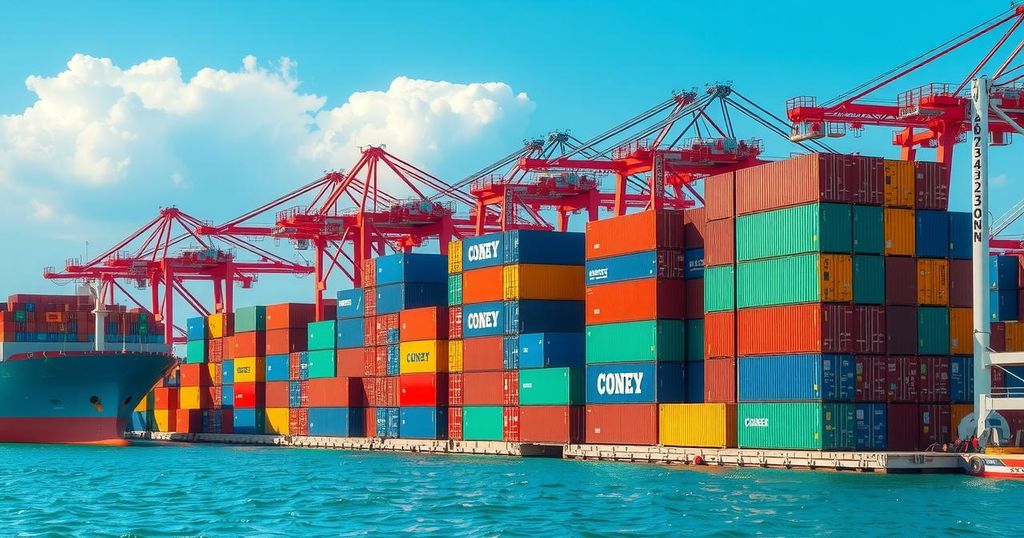Li Ka-shing’s company, CK Hutchison Holdings, is facing scrutiny from Beijing over its deal to sell Panama Canal port assets to a consortium including BlackRock. This transaction highlights the challenges Hong Kong businesses encounter amidst rising pressures for loyalty to China, showcasing tensions between capitalist interests and nationalist expectations. The geopolitical implications of this deal may further complicate relations between Hong Kong’s private sector and Beijing’s political agenda.
Li Ka-shing, Hong Kong’s wealthiest individual and chairman of CK Hutchison Holdings, faces scrutiny due to his company’s deal involving Panama Ports. The sale to a consortium led by BlackRock has elicited negative reactions from Beijing, reflecting the complexities Hong Kong businesses experience as they navigate their interests against the backdrop of increasing demands for loyalty to the Chinese state.
Li, widely recognized as a major figure in global finance, has maintained a prominent position despite retiring in 2018. His empire spans various industries in Hong Kong and internationally, influencing everyday life with stakes in telecommunications, utilities, and retail. This extensive impact has established him as a pivotal player in both the economy and the political landscape.
CK Hutchison has managed ports in Panama since 1997, a crucial fact given geopolitical tensions surrounding the Panama Canal. The consortium’s acquisition, valued at nearly $23 billion, includes the management of key ports, a strategic asset which has raised eyebrows in Beijing, particularly regarding alleged foreign influence in critical infrastructure.
Previously, Li has encountered criticism for business decisions that seemed to contravene patriotic sentiments in China. The sale of assets in mainland China prompted moral accusations from state-affiliated media. Furthermore, during the 2019 pro-democracy protests, he was perceived as uncommitted to public sentiments, resulting in backlash from pro-Beijing factions.
The deal, reaching nearly $23 billion with substantial debt, has been framed by CK Hutchison as a commercial transaction, though its implications extend beyond mere business considerations. Statements from Beijing indicate discontent, suggesting that Li should reconsider his affiliations, underlining the tensions between Chinese nationalism and capitalist practices in Hong Kong.
Government officials, including Chief Executive John Lee, expressed resistance to characterization as bullying in international affairs. Amid this complex situation, the pressure from Beijing remains unclear, particularly regarding whether this scrutiny may influence Panama’s response to the transaction.
Strategically, ports like those in Panama are vital and transactions surrounding them warrant delicate handling. Experts predict that if Beijing intensifies its demand for a reevaluation of the deal, Li’s business interests may enter a precarious position, heightening tensions in the U.S.-China relations landscape, which remains sensitive with respect to Hong Kong’s autonomy.
Long-term repercussions may compel Li to align his future investments more closely with Beijing’s objectives to mitigate criticism. Yet, this precarious balance reflects broader uncertainties faced by business leaders as they navigate their roles amidst tightening political controls from the Chinese Communist Party, underscoring ongoing debates about Hong Kong’s promised autonomy and the preservation of its unique economic landscape.
Li Ka-shing’s controversial Panama Ports deal has ignited tensions between his business empire and Beijing amid a landscape of shifting political demands. As pressures mount from both Chinese authorities and foreign interests, the implications for Hong Kong’s business environment remain profound. The situation underscores the balancing act required by business leaders in Hong Kong as they navigate loyalty to the state while upholding their commercial interests. The unfolding dynamics signal a critical juncture for the future of business autonomy and political engagement in the region.
Original Source: apnews.com






